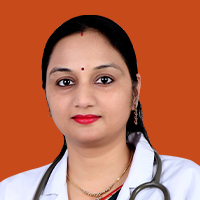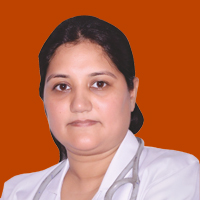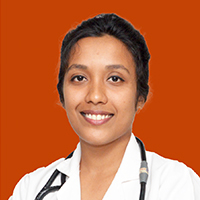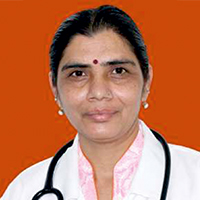

Successful Treatments
Clinics
Doctors
What is a Vaginal Yeast Infection?
Vaginal yeast infections, or Candidiasis, are a type of fungus infection that is caused by an overgrowth of the Candida albicans. This fungus lives quite naturally in the body, but when there is a disturbance in the ratio of bacteria and yeast within it, it may end up overgrowing the yeast, therefore causing an infection.
Typically, it presents itself with symptoms like itching, burning, irritation, and abnormal discharge. Thick, white, cottage cheese-like discharge is usual. The infection may worsen with a significantly uncomfortable feel without treatment. Poor hygiene, hormonal imbalances, reduced immunity, and long periods of using antibiotics are some conditions usually associated with yeast infections.
Symptoms
Itching and Irritation
The most common symptom of yeast infections is itchy sensation within the vaginal area. This condition causes heightened redness, inflammation, and irritation of the vulva, causing pain.
Abnormal Discharge
The most common symptom of yeast infections is itchy sensation within the vaginal area. This condition causes heightened redness, inflammation, and irritation of the vulva, causing pain.
Burning Sensation
Burning is a common symptom that generally occurs when someone is urinating or having intercourse. This burning phenomenon occurs due to irritation inflicted by the yeast into the vaginal mucosal tissues, which is very sensitive.
Swelling and Redness
The vulva and adjacent tissues feel swollen and red due to inflammation. Swelling also makes the tissues very sensitive and painful to the infection.
Pain During Intercourse
Since the infection causes irritation in the vaginal tissues, coitus can become painful or even cause pain while intercourse, which again causes more distress along with the infection.
Ayurvedic Treatment for Vaginal Yeast Infection
Ayurvedic treatment for yeast infections focuses on balancing the body's internal environment, detoxification, and using natural remedies to support the healing process.
Herbal Remedies
Ayurveda recommends several herbs and natural substances to address yeast infections. These herbs are known for their antifungal, anti-inflammatory, and immune-boosting properties:
Neem (Azadirachta indica): Neem is one of the most famous antifungals in Ayurveda. It kills the yeast and prevents overgrowth, thus decreasing pruritus and discharge.
Turmeric (Curcuma longa): This anti-inflammatory and antifungal herb is very potent in fighting infection and reducing swelling. It is an excellent soothing herb for burning and irritation.
Aloe Vera (Aloe barbadensis): Aloe vera gel, applied externally, can cool the skin, relieve itching, and reduce inflammation. Its natural antifungal properties help tackle the yeast, while its cooling effect provides immediate relief.
Triphala: Triphala is an Ayurvedic preparation that supports digestion and detoxifies, helping eliminate toxins in the body that might be causing the infection, thereby preventing it from recurring.
Dietary Guidelines
Diet is an important constituent of the healing process as envisioned in Ayurveda. For any yeast infection, diet advice would invariably be in the form of a Pitta-pacifying diet, which is anti-inflammatory in its approach, thus maintaining equilibrium. General dietary tips include:
Avoid Refined Sugars and Processed Foods: Candida feeds on sugar; hence, a reduction in or complete avoidance of refined sugars and processed foods might make it difficult for the yeast to grow because it would be starved and its growth would decline, hence permitting the symptoms of the infection to subside.
Include Probiotics: Foods high in probiotics, including yoghurt and kefir, also have fermented vegetables that will implant useful bacteria into the intestines to help prevent the yeast from over-germinating in intestinal and vaginal areas.
Stay Hydrated: One of the ways to flush out toxins through the body is to drink a lot of water. Drinking water also supports the health of the immune system. In addition, more fluids in the body maintain the balance; this helps keep the vaginal flora healthy.
Eat Fresh, Whole Foods: A diet rich in vegetables, whole grains, and legumes is supportive of the whole digestive system and immune system, making it harder for infections to occur. Few of these foods tend to cause blood sugar levels to go up, further making it less likely to cause excessive yeast growth.
Lifestyle Modifications
Hygiene: Good hygiene would prevent yeast infections. Wearing loose-fitting cotton underwear allows proper ventilation and reduces the buildup of moisture, which is something that fosters the growth of yeast. Apart from this, avoiding tight clothing and keeping the genital area clean helps to keep it moist and free from infections.
Yoga and Meditation: This is one of the common causes of repeated yeast infections, and regularly doing yoga and meditation works to reduce the frequency of stress. Keeping a peaceful mind balances hormones, which in turn helps maintain the health of the vagina.
Pranayama (Breathing Exercises): Pranayama, or deep breathing exercises, helps to regulate the nervous system and reduces stress. These exercises improve oxygen flow to the body, promoting overall health and strengthening the immune system, which helps ward off infections.
Detoxification Therapies (Panchakarma)
Ayurvedic detox therapies, known as Panchakarma, are used to cleanse the body of accumulated toxins (Ama) that may contribute to infections.
Basti (Enema): Basti treatment cleans the colon by removing noxious agents and re-establishes the balance of doshas. Having a healthy digestive system is to not come up with recurring yeast infections because if your digestive system is vitiated, you tend to get more overload of Candida.
Virechana (Purgation): Virechana Ayurvedic detoxification treatment purifies the body when it removes noxious agents from the liver and digestive system. In cleansing the body of these toxins, Virechana helps regain as well as maintain equilibrium and boost the body's resistance power.
Mental and Emotional Well-being
Ayurveda emphasises the importance of emotional and mental health in managing and preventing physical ailments like yeast infections.
Meditation and Mindfulness: Regular meditation and mindfulness techniques can help reduce stress, which is a known trigger for yeast infections. By calming the mind, these practices promote hormonal balance and strengthen the immune system, reducing the likelihood of infections.
Ayurvedic Counselling: Ayurvedic counselling shall help you determine psychological factors causing stress and guide you to balance your mental health. It ensures the mind also works in coordination with the body, which would not allow infections as frequently or severely.
At Jiva Ayurveda, we provide treatment according to the ancient wisdom of Ayurveda which also deals with the root cause of your health concern. Our team of professional doctors uses medicines along with diet and lifestyle changes to restore your health. Whether you're addressing chronic diseases like diabetes, digestive issues, or stress, or looking to improve your overall well-being, Jiva Ayurveda provides natural, effective solutions tailored to your unique constitution.
Importance of Diet and Lifestyle in Preventing Yeast Infections
A healthy diet and lifestyle are critical to preventing yeast infections and supporting overall health.
Balanced Diet: Probiotic-rich foods like yoghurt, kefir, and fermented vegetables create a healthy balance of bacteria in the gut and vaginal canal, which prevent overgrowth of yeast and maintain proper immune function.
Exercise: It is habitual exercise that reasserts the growth of the immune system as well as raises its ability to fight infections. Moreover, exercises help reduce stress, which may prevent infections due to hormonal imbalances.
Hydration: Water helps in removing toxins from the body by promoting its natural detoxification and maintaining healthy vaginal flora without infections.
FAQs
Yes, natural remedies like neem, turmeric, and aloe vera, combined with proper diet and hygiene, can help treat yeast infections.
You can prevent yeast infections by maintaining good hygiene, eating a balanced diet, avoiding sugar, and wearing breathable clothing.
A vaginal yeast infection is a fungal infection caused by the overgrowth of Candida yeast, leading to symptoms like itching, discharge, and irritation.
Home remedies include applying aloe vera, consuming probiotics, and avoiding refined sugars to starve the yeast.
Sexual activity can introduce bacteria or disrupt vaginal pH, potentially leading to yeast infections.
Yes, men can also develop yeast infections, particularly on the penis, which may require antifungal treatment.
If left untreated, a yeast infection can worsen, leading to severe symptoms and discomfort.
Apply a thin layer of Candid B cream to the affected area 2-3 times daily, following your healthcare provider's instructions.
Yes, antibiotics can disrupt the natural balance of bacteria in your body, leading to an overgrowth of Candida yeast and resulting in a yeast infection.
With proper treatment, mild yeast infections usually resolve within 3-7 days. More severe or recurrent infections may take longer to heal.
Yes, a yeast infection can cause inflammation around the vaginal area, which may result in a burning sensation during urination.
Top Ayurveda Doctors
Our Happy Patients
Home Remedies
Related Disease
- Ayurvedic Treatment for Infertility
- Ayurvedic Treatment for Frigidity
- Ayurvedic Treatment for Leucorrhoea
- Ayurvedic Treatment for Menopause
- Ayurvedic Treatment for Adenomyosis
- Ayurvedic Treatment for Endometriosis
- Ayurvedic Treatment for Dysmenorrhea
- Ayurvedic Treatment for PCOS
- Ayurvedic Treatment for Vaginal Infection
- Ayurvedic Treatment For Vaginal Yeast Infection
- Ayurvedic Treatment for Hematuria
- Ayurvedic Treatment for Epididymitis
- Get Ayurvedic Treatment For Uterine Fibroids
- Ayurvedic Treatment for Hirsutism
- Get Ayurvedic Treatment for Menorrhagia
- Get Ayurvedic Treatment for Amenorrhea
Latest Blogs
- Surgery के बाद कमज़ोरी, Dopamine कम और Immunity गिर गई थी—Ayurveda ने कैसे फिर से ताकत दी
- 85 से 115 KG तक अचानक बढ़ा वज़न—Thyroid, Fatty Liver और Kidney Stone में Ayurveda ने कैसे संभाली हालत
- PCOD Success Story: जब दवाइयाँ काम न करें, Ayurveda दिखाता है असली रास्ता
- लंबे समय तक बैठकर काम करने से बढ़ा Lower Back Pain—10 दिन के Panchakarma ने कैसे दिया आराम
- सालों की Acidity, Gas और Joint Pain—Ayurveda ने 3 महीनों में कैसे दी राहत
- Knee Replacement से पहले रुकिए! Ayurveda ने कैसे रोका Operation और दिया प्राकृतिक राहत
- गंभीर Jaundice के बाद शुरू हुआ तेज़ Joint Pain—Ayurveda ने सिर्फ 4 महीनों में कैसे दी राहत
- Skin Allergy और Fungal Infection ने रातों की नींद छीन ली थी—Ayurveda ने कैसे दी गहरी राहत
- बार-बार होने वाली खाँसी, ज़ुकाम और साँस की दिक्कत—Ayurveda ने कैसे तोड़ी ये Chronic Cycle
- 10.6 से 6.2 तक की गिरावट—Ayurveda ने Diabetes Management में कैसे दिखाई ताकत
- Disk Bulge की वजह से चलना बंद हो गया था—Ayurveda ने कैसे दोबारा खड़ा होने की ताकत दी
- High Diabetes रिपोर्ट ने डरा दिया था—Ayurveda ने बिना आजीवन औषधियाँ के दिखाया नया रास्ता
- 65 की उम्र में भी नींद नहीं आती थी—जीवा आयुर्वेद की Video Consultation ने कैसे दी सुकूनभरी नींद
- Migraine ने पढ़ाई और काम दोनों रोक दिए थे—Personalised Ayurvedic Treatment ने कैसे बदली ज़िंदगी
- खड़े रहना मुश्किल, हाथ सुन्न, लगातार दर्द—Ayurveda ने कैसे बदली Arthritis की कहानी
- 28-Year-Old की Struggle: Skin Problems से लेकर Psoriasis Relief तक की Ayurvedic Journey
- 100 दिनों में Diabetes Reverse! Ayurveda ने कैसे 8.5 से 5.5 तक गिराया HbA1c
- सालों पुराने Knee Pain में Painkillers भी हार गए—Ayurveda ने कैसे दिलाया सच्चा आराम
- 74 साल की उम्र में भी Osteoporosis Pain से मिली राहत—Ayurveda ने कैसे बदली ज़िंदगी
- जब चलना मुश्किल हो जाए और डॉक्टर Operation कहें—Jivagram का Ayurveda कैसे बदल देता है ज़िंदगी
Ayurvedic Doctor In Top Cities
- Ayurvedic Doctors in Bangalore
- Ayurvedic Doctors in Pune
- Ayurvedic Doctors in Delhi
- Ayurvedic Doctors in Hyderabad
- Ayurvedic Doctors in Indore
- Ayurvedic Doctors in Mumbai
- Ayurvedic Doctors in Lucknow
- Ayurvedic Doctors in Kolkata
- Ayurvedic Doctors in Patna
- Ayurvedic Doctors in Vadodara
- Ayurvedic Doctors in Ahmedabad
- Ayurvedic Doctors in Chandigarh
- Ayurvedic Doctors in Gurugaon
- Ayurvedic Doctors in Jaipur
- Ayurvedic Doctors in Kanpur
- Ayurvedic Doctors in Noida
- Ayurvedic Doctors in Ranchi
- Ayurvedic Doctors in Bhopal
- Ayurvedic Doctors in Ludhiana
- Ayurvedic Doctors in Dehradun









































